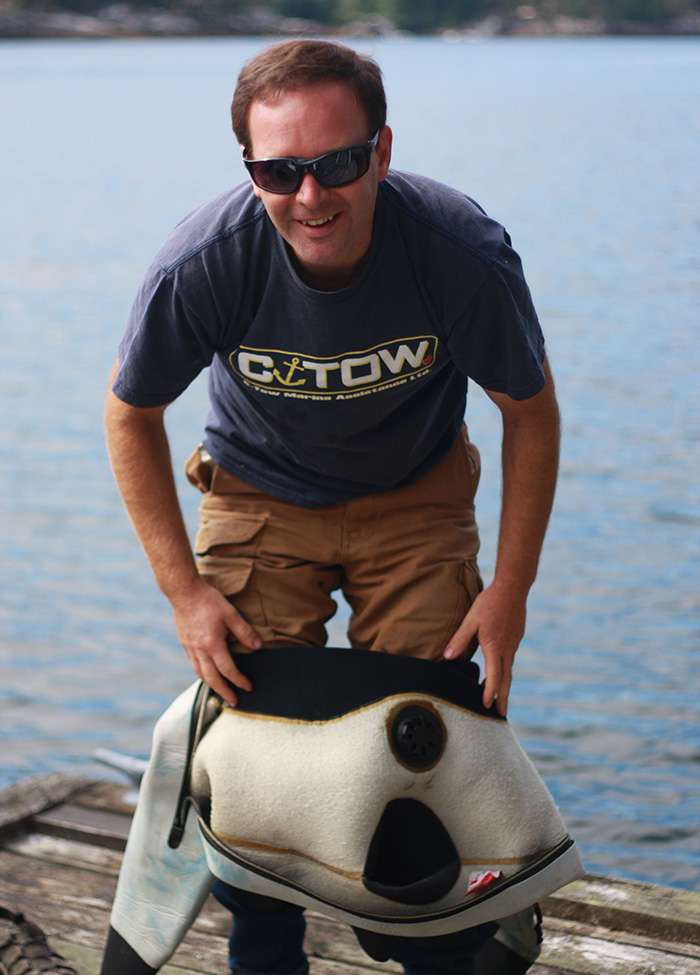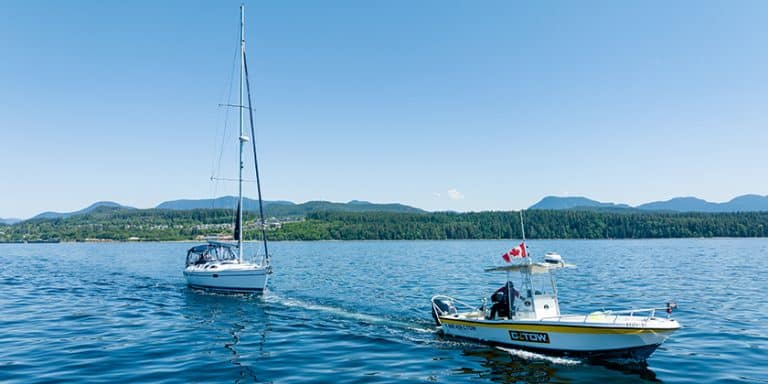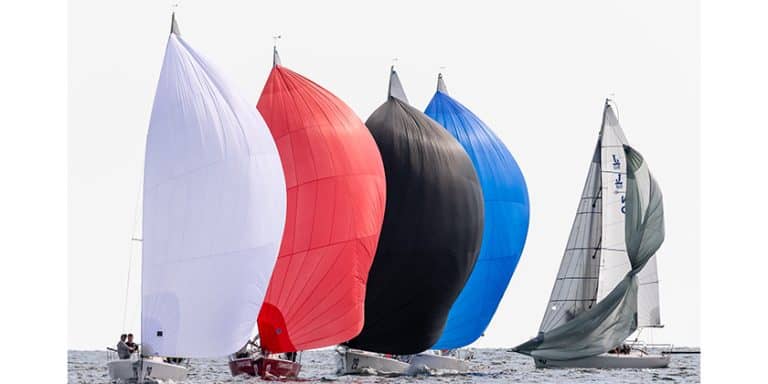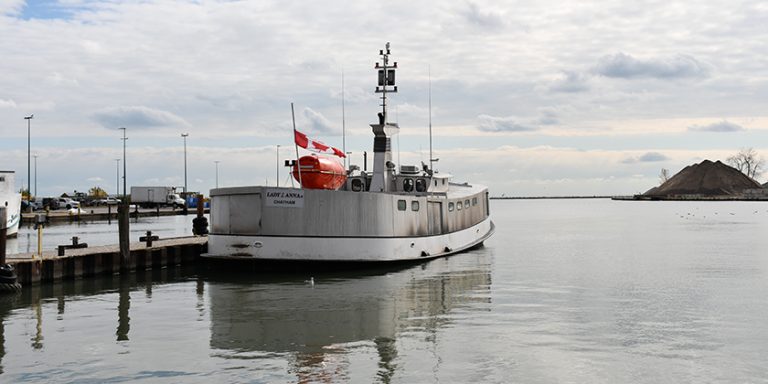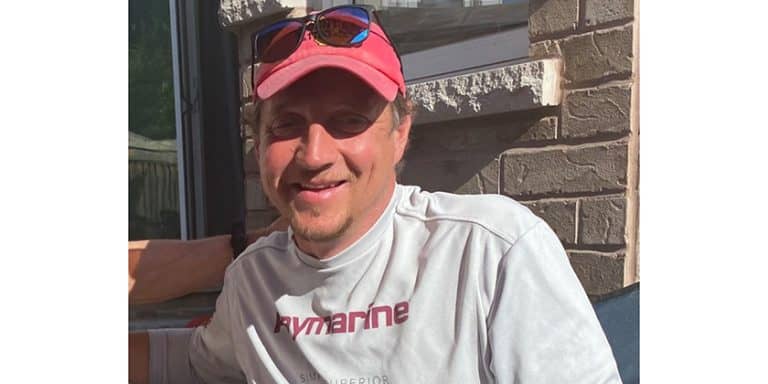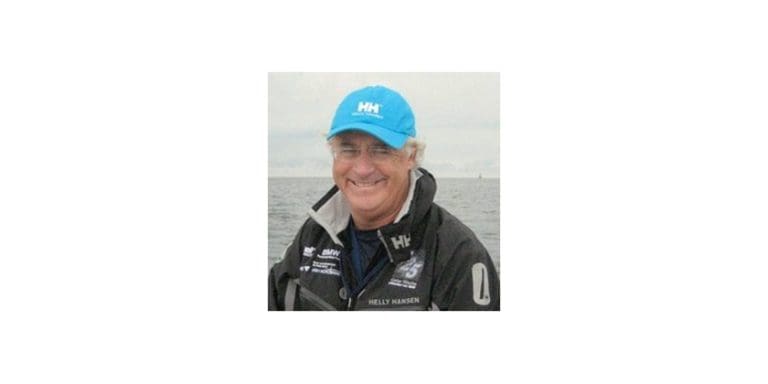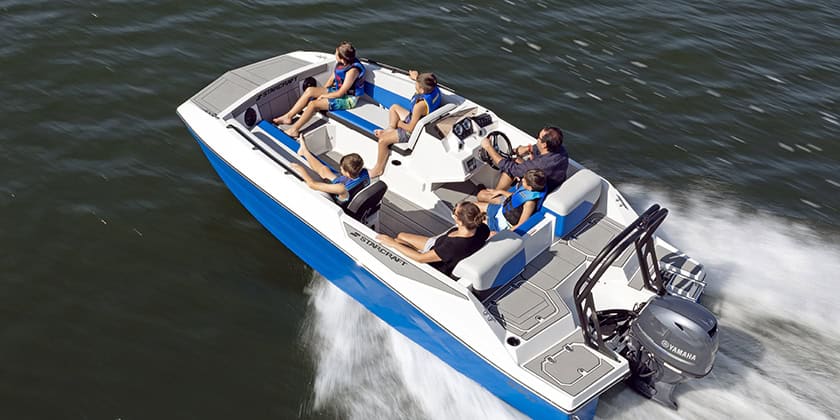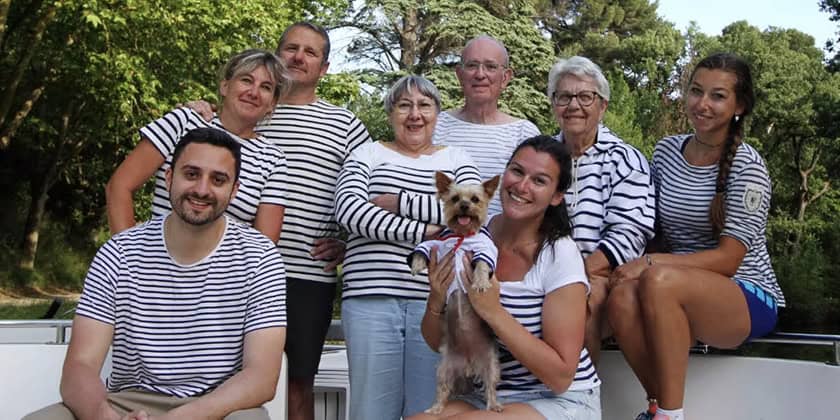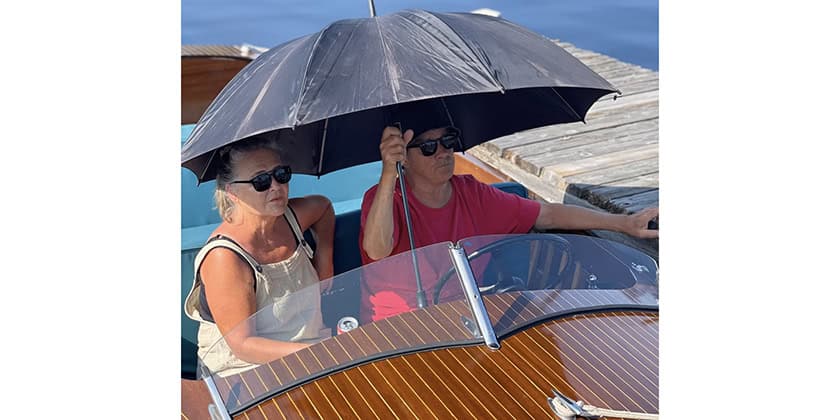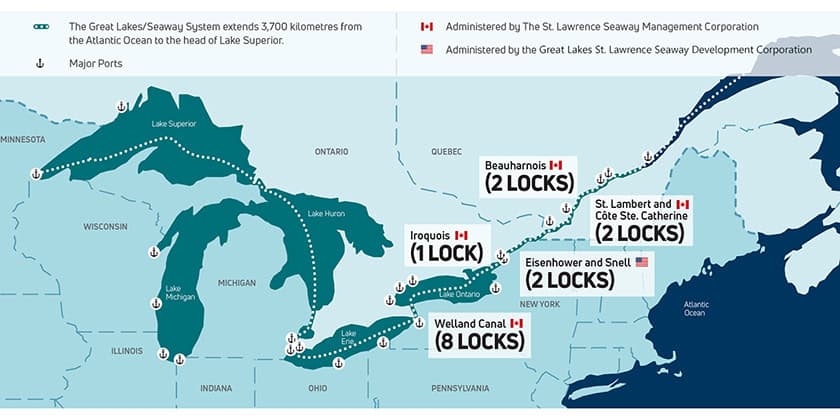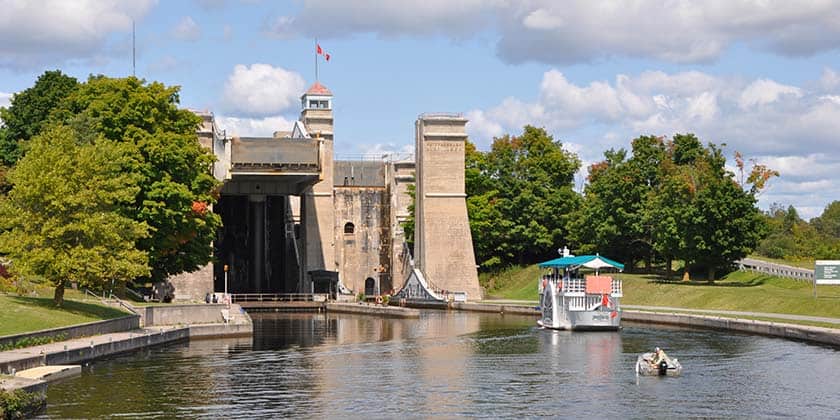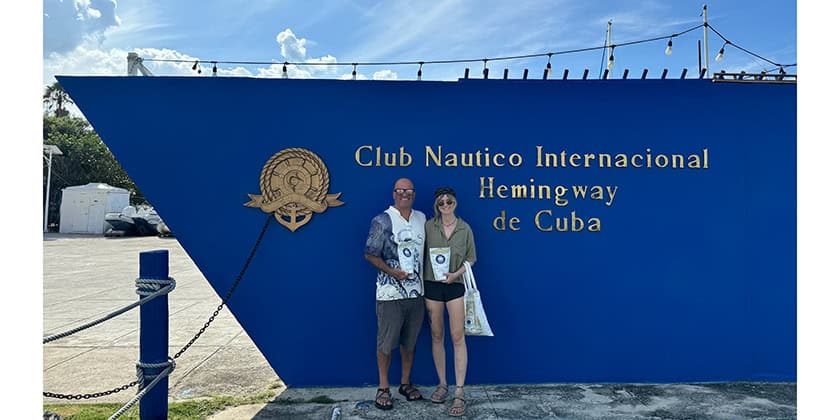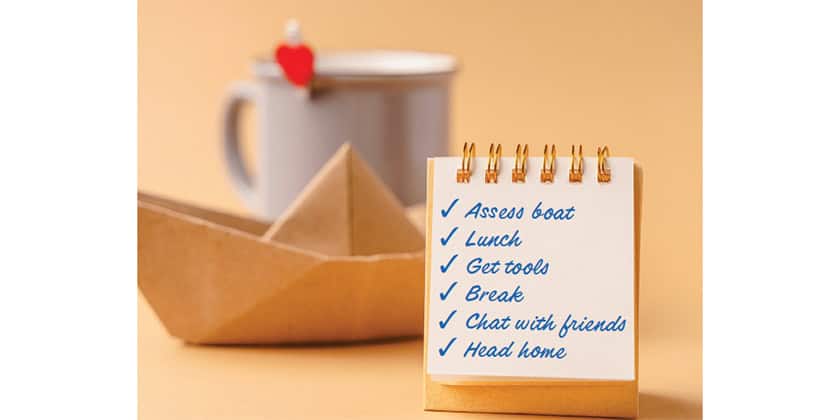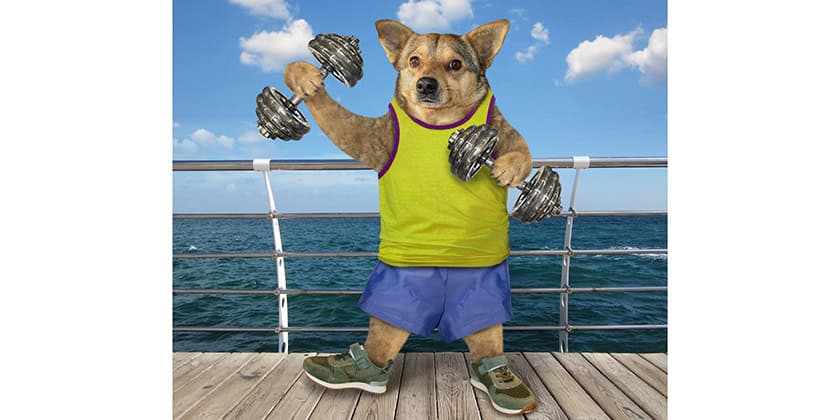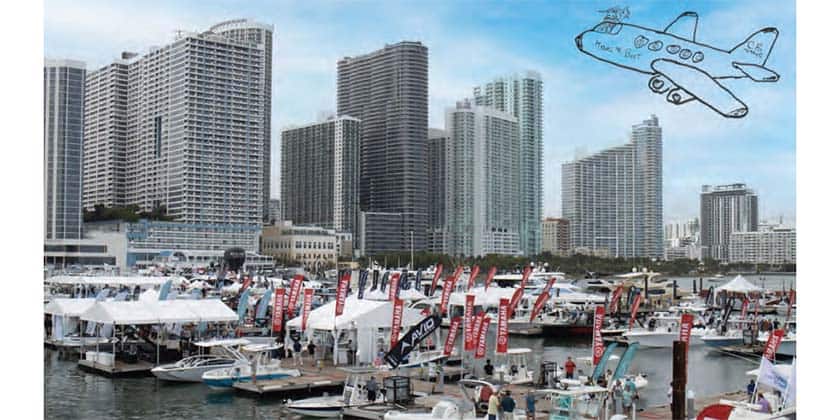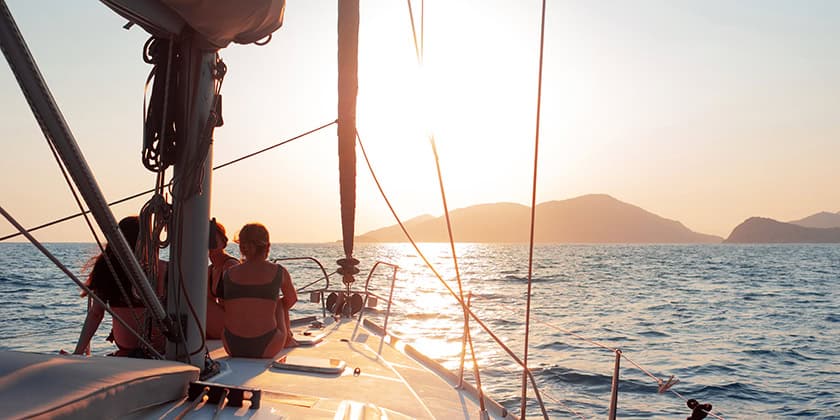C-Tow Marine Assistance – a 40-Year History of Helping Canadian Boaters
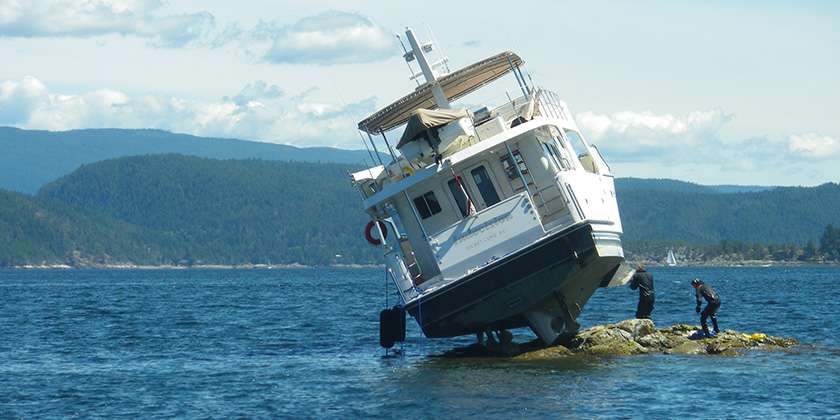
By Peter A. Robson
From its humble beginnings 40 years ago, C-Tow Marine Assistance Ltd. has grown into the largest private marine assistance company in Canada with more than 10,000 members. C-Tow is proudly Canadian-owned and operated. A fleet of 40 vessels workking in four Canadian provinces. In the summer, C-Tow receives about 700 service calls per month. In BC, C-Tow performs 90 percent of all recreational service calls and in Ontario almost 100 percent. Since 1984, C-Tow has responded to over 50,000 requests for service across Canada.
In the Beginning
It all started back in 1984 when the Canadian Coast Guard announced that they would no longer tow non-distressed vessels; and that they would respond only to emergency, life-threatening situations. Non-emergencies would now be dealt with by commercial operators. This opened a whole new world of opportunities for entrepreneurs.
Jim MacDonald had worked as a bouncer at a Vancouver Island pub. Among a group of regulars was Steve Ackles and his wife Sherri. According to Sherri, the local Coast Guard guys would come into the pub and have a few drinks. Jim got talking to them and they suggested there was money to be made from offering marine assistance. Both Jim and Steve were experienced boaters and the two thought, “Wow! This could work.”

Their idea was to become the “Auto Club of the Sea,” offering annual memberships that would include towing broken down vessels, providing gas, assisting grounded vessels, small mechanical repairs, helping lost mariners and that sort of thing.
Sherri Ackles remembers when Steve and Jim first started. They decided that the Howe Sound/Vancouver/Fraser River area would generate the most business, so the two initially based themselves out of Steve’s family’s cabin on Gambier Island. Their first towboat was an old fibreglass cabin cruiser, though they soon replaced it with an 18-foot Zodiac inflatable. Jim and Steve developed brochures, started advertising and contacted companies about discounts for members. However, Steve soon decided that with a young family to look after, the towing business wasn’t working out for him. Jim then moved his operation to Bowen Island in Howe Sound.
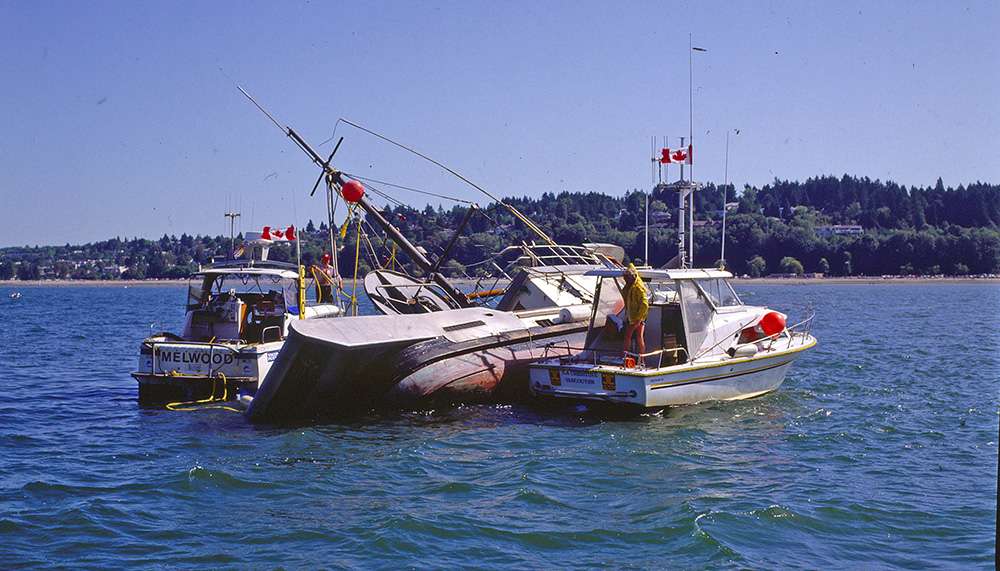
Bruce Falkins had operated the fuel dock at Fisherman’s Cove in West Vancouver since the early 1980s. “I remember when Jim first arrived sometime in about 1984. He showed up on a miserable day and his Zodiac had no protection, not even a cabin. It was powered by a pair of 70-hp outboards and I remember thinking to myself, holy smokes, that’s hardcore. I was a member of the Coast Guard Auxiliary, and I asked him what he was doing. He said that marine towing was all going commercial, and that he was starting a commercial towing outfit. I thought, “That’s great, good for you. He was the first person I met who was doing that.”
Norma Dallas, former owner of the Bowen Island Marina, recalls Jim’s dedication to the work. “He went out on that inflatable in the most god-awful weather you could ever, ever, imagine. Regardless of the call, he would take off in that Zodiac in miserable weather, in storms and the dark. That man took his life in his hands to go and rescue a vessel. He was unbelievable.”
Barb (nee MacDonald) met Jim on Bowen in 1988. She often went out with him on calls. She recalls those early years: “There were a lot of boats out there and of course, we had a radio and scanner in our house, and it was on 24 hours per day on VHF 16 and 22, the Coast Guard channels and the Vancouver Traffic channels. It did kind of drive me crazy at first, but I slowly got used to it. It was kind of fun listening to what was going on and I still kind of miss it.”
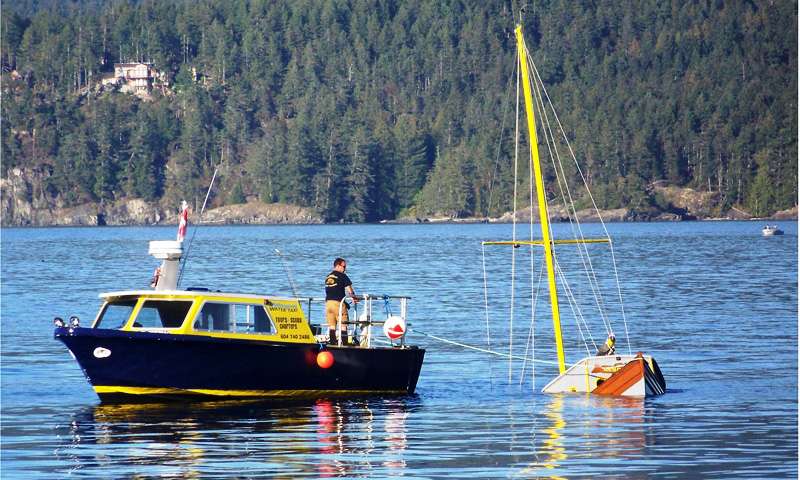
Rising Popularity
Continued Barb: “He was originally by himself and then he recruited other vessel operators, asking if they wanted to become part of the C-Tow network. He told them if there were problems in their area of the coast, he’d call them and they could rescue the vessel or deal with their problems. In the early 1990s, C-Tow membership had expanded to almost 200.
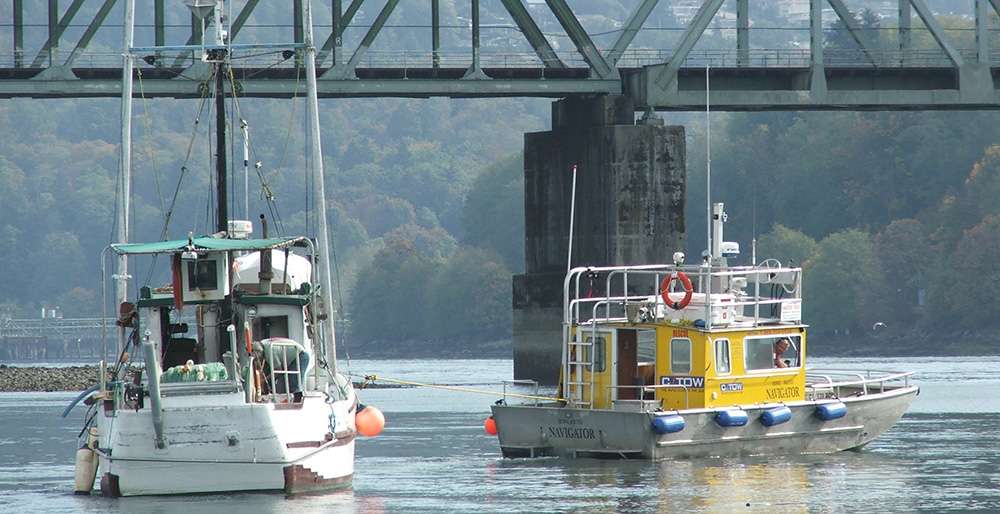
Jim MacDonald Passes
Jim MacDonald passed in 2002 and Barb wasn’t interested in carrying on the company. Jim’s Long-time friends, Harry Woodman (C-Tow Melwood), and his girlfriend, Joy Meldrum, ended up taking over management. However, Woodman wasn’t really interested in building the company and he started looking for someone to take it over. In the end, Harry handed it over to marine surveyor Paul Dupre in late 2002. Dupre sold the company to Gibsons-based Wayne Skinner in 2005 and in 2008, Skinner sold the company to current owner Andy Cardiff. At the time there were about 500 C-Tow members in BC.
Andy Cardiff Buys C-Tow
Andy Cardiff grew up on the St. Lawrence and later in Sidney on Vancouver Island and he had spent a lot of time sailing and powerboating. He had been a water-taxi operator/owner (Malaspina Water Taxi) on the Sunshine Coast since 2004, and a C-Tow captain since 2006.
Since assuming ownership, Andy has done the most of any owner to grow the business into Canada’s largest private marine assistance company. He explains, “I immediately let go a couple guys who I thought were questionable, or had crappy boats and then gradually I built it up again with more quality people and more quality boats. We now have an average of about 16 captains in B.C. Another big move was to expand the service areas to the north, south and west of coastal BC.”

Expanding into Eastern Canada … & Beyond
Since Andy was originally from Ontario, he knew the area and the lakes, and he saw an opportunity to expand C-Tow to eastern Canada. “In 2010, we started putting the idea on Twitter and Facebook and places like that,” he explained. “People would see the posts and they would call and say they’d like to be a captain. Once we had one captain back east, it snowballed on its own and grew. We first opened operations in Toronto and the Georgian Bay areas, then we expanded across Ontario, which is still C-Tow’s fastest-growing area. There are currently 20 C-Tow captains in Ontario.”
Michael McRobb, who provides towing and salvage services to the western Lake Ontario region, was Ontario’s first C-Tow operator. When invited to join the C-Tow team eight years ago, McRobb said, “I responded yes immediately. I didn’t even think about it for a second.”
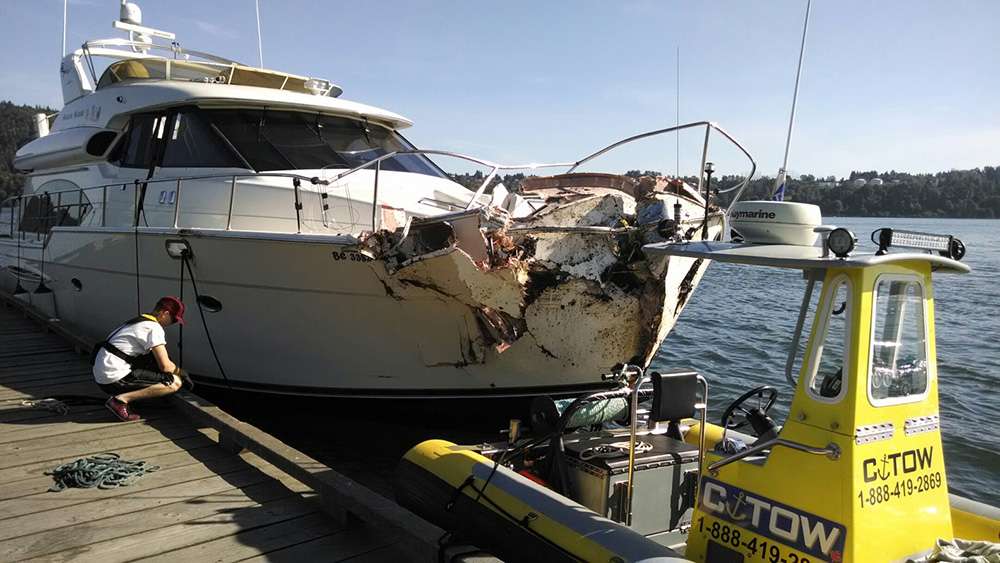
Rick Layzell is the CEO of the not-for-profit Boating Ontario Association—Canada’s largest recreational boating trade association—representing over 500 member companies in Ontario. That organization launched and owned the marine assistance company called Boater Assist Canada Inc. in about June of 2011. Like C-Tow, Boater Assist primarily operated as a membership service, offering boaters on Ontario waters access to marine assistance services upon request. In November 2014, Boater Assist was purchased by C-Tow. At the time of purchase, Boater Assist had approximately 600 members.
C-Tow subsequently opened with one vessel each in Newfoundland and Nova Scotia. Due to ice, Ontario and the other two provinces are only serviced from May to October. Cardiff’s future plans include expansion to Prince Edward Island and New Brunswick. However, the most exciting news is that C-Tow has officially opened up in the tropical Turks and Caicos Islands.
C-Tow, you’ve come a long way!
For more information, visit c-tow.ca
